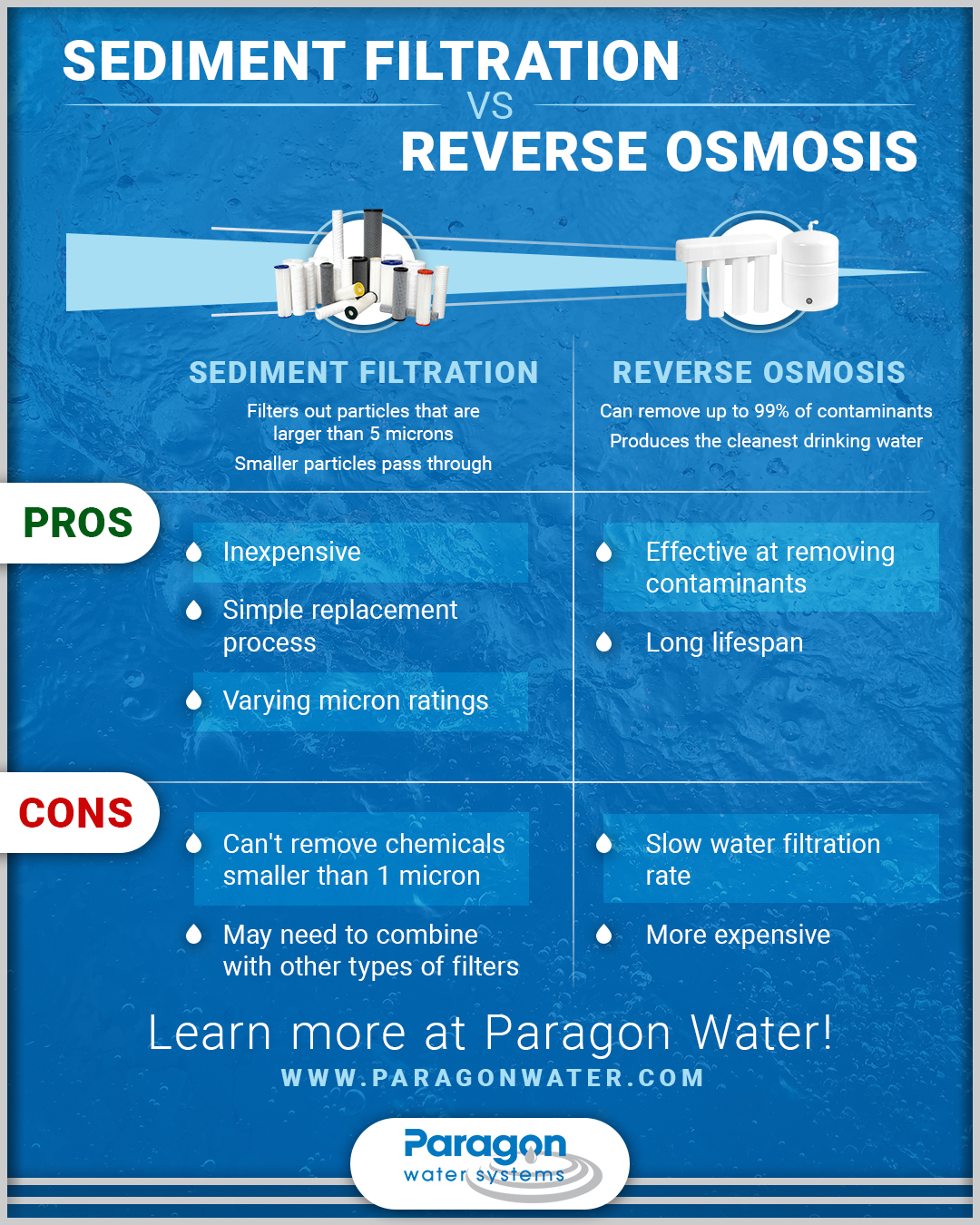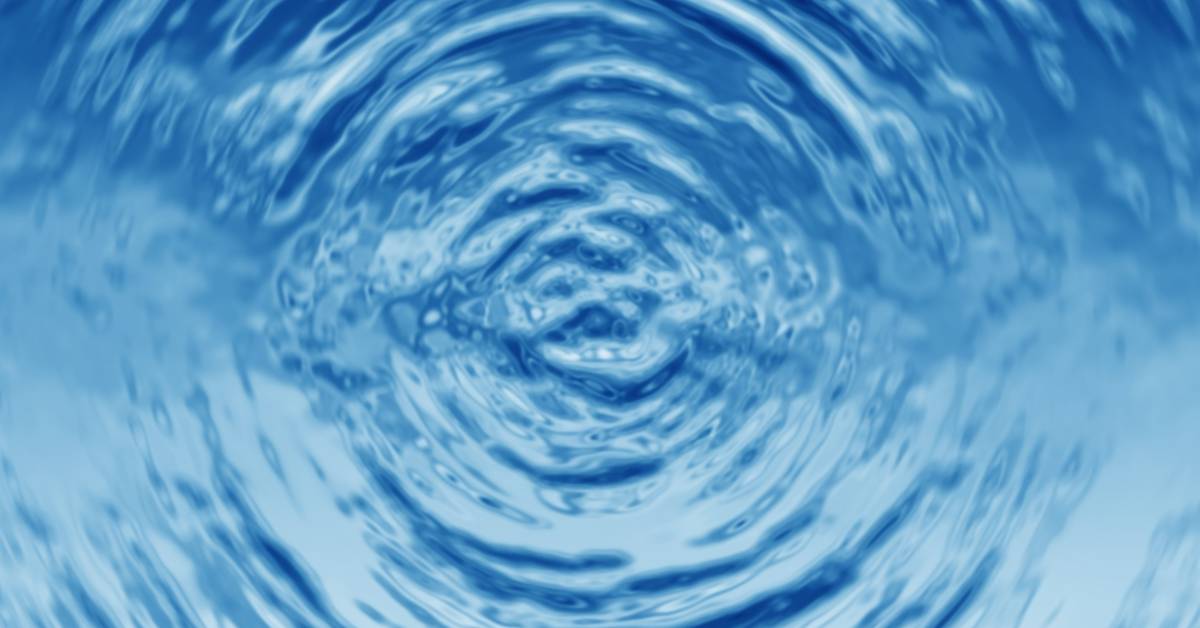Sediment Filtration vs. Reverse Osmosis
At Paragon Water, we know that you want to be able to provide your customers with the home water purification system that is exactly right for their needs. In order to do that, you first need to understand how each system works, and in today’s post, we will provide you with more information about two of the most common water purification systems — the sediment filtration system and the reverse osmosis filtration system. Learn more below, and contact Paragon Water for all of your water purification needs.

Sediment Filtration
Almost everyone is familiar with sediment. Sediment is usually the leftover particles that sink to the bottom of a cup of water. Nobody wants to drink water that is full of sediment, and it turns out that not only can sediment affect your drinking water, but it can also wreak havoc on pipes, appliances, and other parts of your home. That’s where a sediment filtration system comes into play.
Sediment filters remove particles, dirt, and debris from your water, making it more pure and clean to drink. This type of filter helps to remove visible particles from your water, such as dirt, sand, dust, and turbidity, which is what makes water seem cloudy. However, a sediment filter is not able to remove chemicals, heavy metals, and bacteria, and it cannot improve the smell or taste of the water.
Pros
Sediment filters are one of the most popular types of filters available. This is because sediment filters tend to be inexpensive, which is why you might see them used for filtered water pitchers. Additionally, sediment filters are easy to replace, and you can also find them with varying micron levels, which is the size measurement for the filtered particles.
Cons
While sediment filters are perfect for people who are simply looking to filter particles from their water, they may not get your water perfectly clean. If the particles or contaminants passing through the filter are less than one micron in size, it will pass right through the filter. For this reason, you may need to combine a sediment filter with other types of filters in order to get the purest form of water.
Reverse Osmosis Filtration
Reverse osmosis (RO) filtration systems are one of the highest quality options around. The advantage of this type of system over a sediment filtration system is that an RO system can filter out more than just the particles in your water. The way an RO system works is the natural water pressure in your home will push the water through a semipermeable membrane, resulting in water that is cleaner and safer to drink.
Pros
There are many benefits to using an RO filtration system. For one, you can rest easy knowing that you and your family are drinking the purest, cleanest water. In fact, reverse osmosis can help remove contaminants such as fluoride, pesticides, detergents, heavy metals, and more at around 99% efficiency! This system also boasts a longer lifespan, meaning you won’t have to change the filter every month. Additionally, should your RO system break, it is fairly simple to fix!
Cons
While an RO filtration system may sound like a dream come true, it comes at a cost. Compared to other types of filtration systems, reverse osmosis systems are on the more expensive side due to the high intensive filtration. Additionally, because the water has to be pushed through a semipermeable membrane, it can take longer to filter out the contaminants than it would with other types of filtration systems.
Find the Parts and Systems You Need at Paragon Water!
When your customers come to you looking for the best home water purification system, it’s important to be informed on what will suit their needs. At Paragon Water, we are proud to be an ODM provider for companies across the country. If you’re in need of parts or entire systems, we’ve got you covered. Learn more by exploring our website and give us a call today!
Tags: Drinking Water Filtration System, Filtration System, Home Drinking Water Filtration, Home Water Filtration, Home Water Purification, Refrigerator In Line Water Filter, Shower Head Filtration, Whole House Water Filtration
